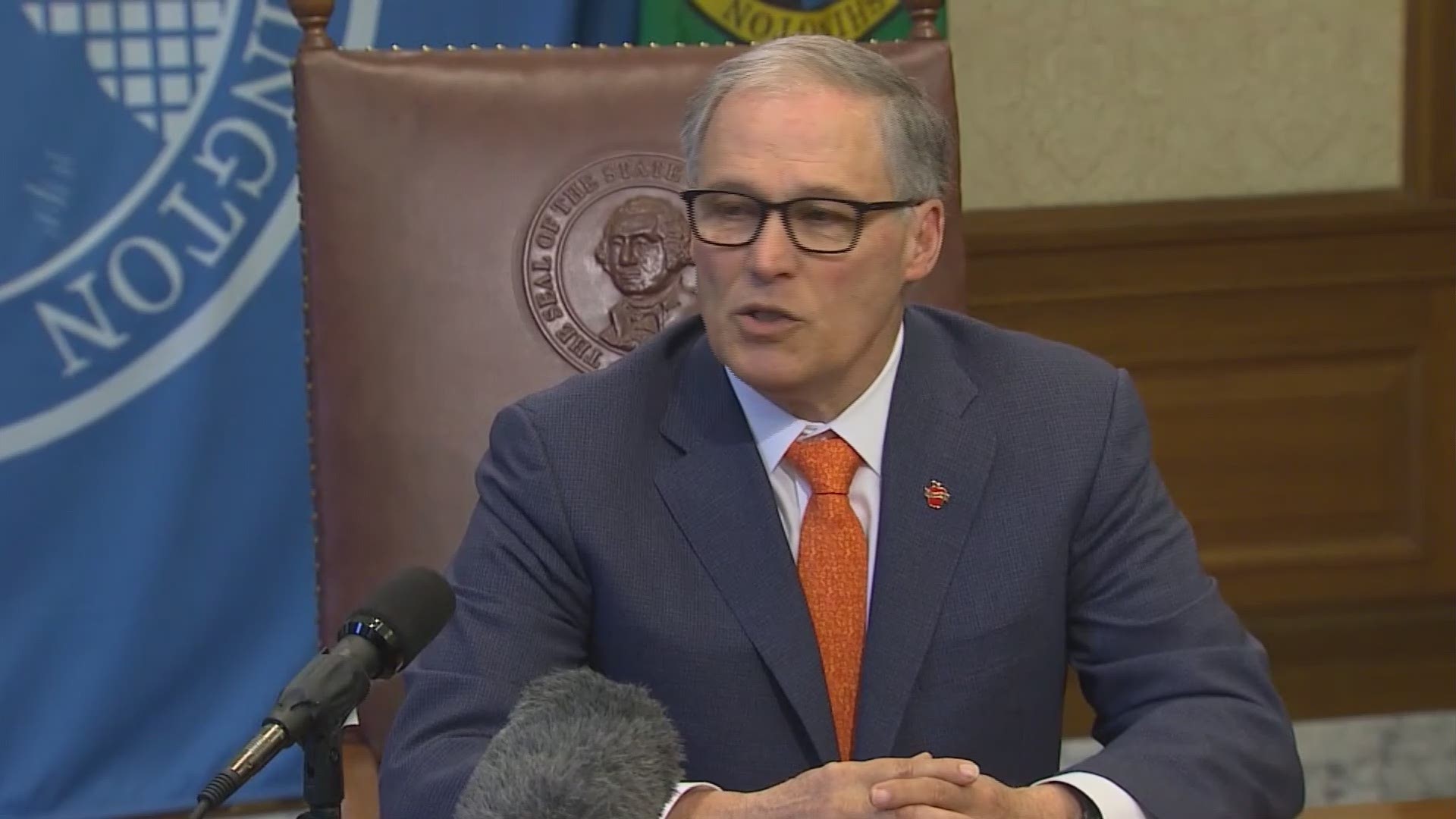Washington Gov. Jay Inslee, who is among a growing group of Democratic presidential contenders, has signed a measure moving the state's presidential primary from May to March.
Inslee signed the bill Thursday, saying that it strengthens the state's role in the national process.
The measure cleared the Legislature days after Inslee announced his presidential campaign. Next year's presidential primary will now move to the second Tuesday in March, and each party, instead of the secretary of state, will determine which names are placed on the ballot representing the parties.
"Moving Washington's primary earlier in the national process will give our voters a greater voice and draw more attention to our state's concerns and issues," Republican Secretary of State Kim Wyman said in a written statement after the vote.
Washington has both a presidential primary and a caucus system. In 2016, Republicans used the May primary to allocated delegates while Democrats opted for the caucus system to divvy up their delegates and ignored the primary results. President Donald Trump won the state primary that year, but was the only Republican candidate remaining at the time. Hillary Clinton won the state primary, but lost the Democratic party caucuses that were held earlier in the year.
State Democrats are expected to make a decision in early April on which method they'll use to allocate delegates in 2020.
Democratic Rep. Javier Valdez noted that caucuses only involve a fraction of the state's more than four million voters, and that an earlier primary would ensure that more voters have a say.
"It's time to make our presidential primary here in this state actually mean something, and actually count," he said.
Washington has no party registration, but the primary requires voters to attest to being either Republican or Democrat. That gives the state parties important information for their voter lists. Residents' party choices are public record, while their votes remain private. That practice continues under the bill that passed. Floor amendments to allow for voters who don't want to affiliate with either party to cast a vote failed in both the Senate and House.
Republican Rep. Jim Walsh, who voted against the measure, said that Washington is a state of independent-minded voters.
"We don't want to be corralled into categories that aren't of our choosing," he said during Monday's floor debate. "The people of Washington want to vote in the presidential primary, and they want to vote without affiliating with either party. Let's let them do that."

